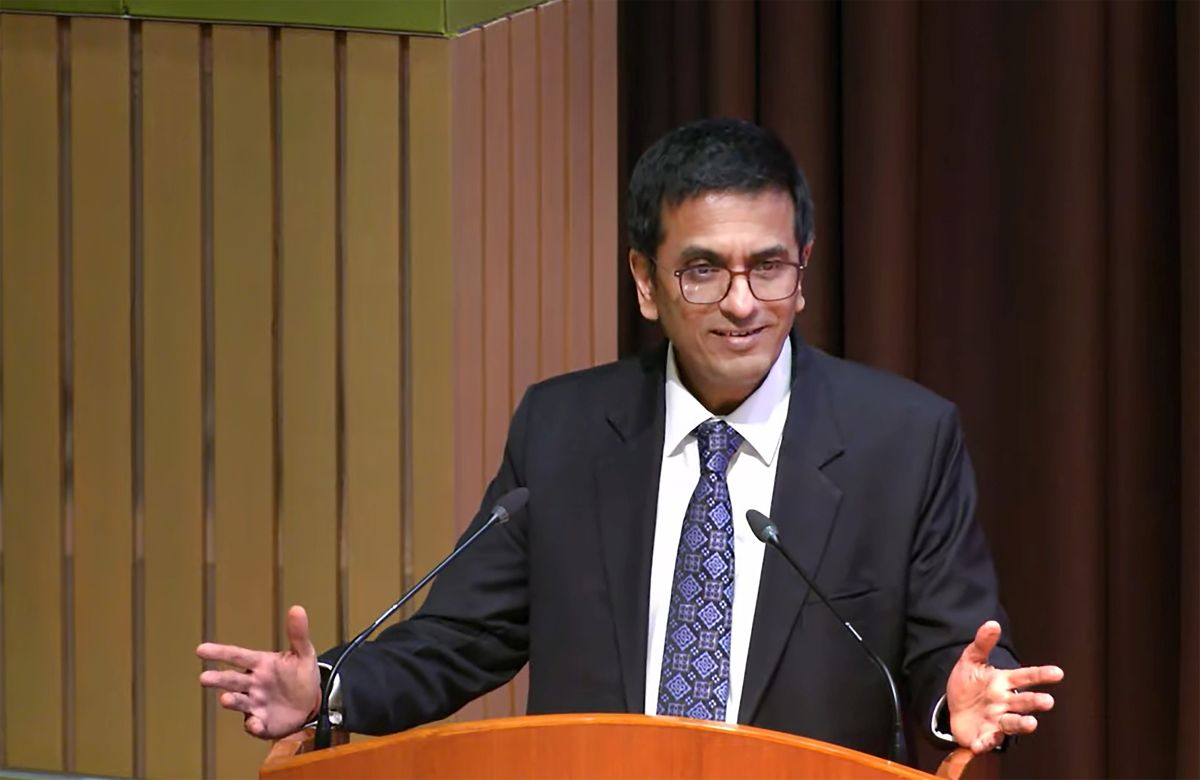Chief Justice of India DY Chandrachud said on Sunday that unfortunately, the legal system has often played a “pivotal role” in perpetuating “historical wrongs” against marginalised social groups, and the harm caused by this can persist for generations.
The CJI was delivering the keynote address at the Sixth International Conference on the ‘Unfinished Legacy of Dr. B.R. Ambedkar’ at Brandeis University, Waltham, Massachusetts, US.
The 2023 edition of the conference focused on ‘Law, Caste, and The Pursuit of Justice’ and was presented by The Center for Global Development and Sustainability.
In his address titled ‘Reformation Beyond Representation: The Social Life of the Constitution in Remedying Historical Wrongs’, the CJI said that throughout history, marginalised social groups have been subjected to horrendous, egregious wrongs, often stemming from prejudice, discrimination, and unequal power dynamics.
Chandrachud said that from the brutal transatlantic slave trade that forcibly uprooted millions of Africans, the Native American displacement, and caste inequalities in India affecting millions of backward castes to the oppression of indigenous Adivasi communities in India, systemic oppression of women, LGBTQI individuals, and other minority communities, the annals of history are stained with instances of profound injustice.
“Unfortunately, the legal system has often played a pivotal role in perpetuating historical wrongs against marginalised social groups. Like in the United States, slavery was legalised in certain parts of India as well,” he added.
“Furthermore, both in the US and in India, the oppressed communities were denied voting rights for a long period of time. In that way, law as an institution was used to maintain existing power structures and institutionalise discrimination, leaving a lasting legacy of injustice that continues to shape the lives of these groups and communities,” Chandrachud said.
Further, the said that even when such laws have been eventually overturned or repealed, the “legacy of their harms can persist for generations, underscoring the complex and enduring relationship between law and historical wrongs committed against marginalised groups. These historical wrongs perpetuate injustice by creating a social system where the marginalised communities are not allowed to rise above their oppression.”
“It creates a kind of self-perpetuating” and hierarchal structure of society, which leads to the normalisation of injustice towards certain groups,” he added.














